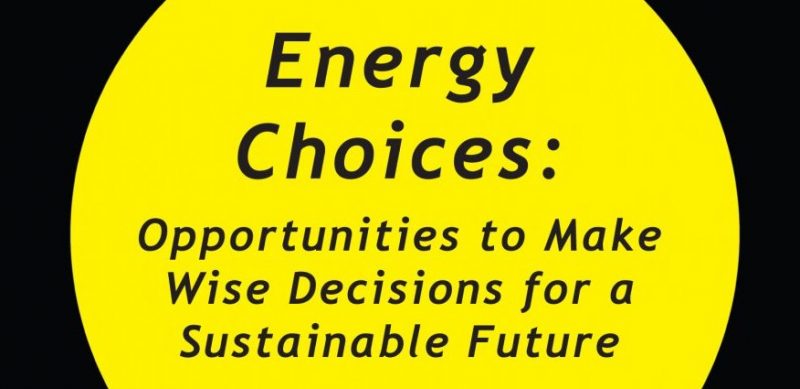Going Green is Easy and Cheaper Now

A Peek into Quaker Institute for the Future’s new book Energy Choices: Opportunities to Make Wise Decisions for a Sustainable Future by Bob Bruninga
Review by Judy Lumb.
WE ARE NEVER MORE than a few years away from making a major personal energy decision: • when we pay our electricity bill • when we buy a new car • when our roof needs replacing • when our water heater quits • when our furnace needs repair • when we move to a new house.
Our current lifestyle is simply not sustainable, not in energy, population growth, water use, nor the food we produce. Nor are the impacts of high- consumption lifestyles borne equally by all—indeed, those who consume the least are typically exposed to the highest levels of air and water pollution. Each of these concerns is paramount to our long-term survival on this planet Earth, and they can be managed if we have the will to seek truth and balance in our stewardship.
For many people, the changes required to move from fossil fuels to clean energy seem insurmountable or less pressing than our individual day-to-day concerns and daily challenges, but recent changes make going green relatively easy. The price of solar power has dropped 100-fold since 1970 and 10-fold just in the last decade. Not only do we see the demise of coal at hand, and the amortized cost of clean solar energy now less than half the price of electricity from the utility, but also we are eight years into the electric vehicle (EV) revolution with cars that are better, faster, cleaner, cheaper to operate, and cheaper to maintain than fossil-fueled vehicles when used in local travel and commuting. We have a sustainable path to a bright future if we will consider our choices and make the right decisions with a prepared mind. Where to begin?
The switch to electrical devices is the first step toward renewable energy. Water heaters, leaf blowers, snow blowers, chain saws, trimmers, edgers and cutters all have excellent electrical equivalents. Once the fossil-fueled devices are replaced with electrical ones, renewable sources can supply the electricity. Electric vehicles open a whole new paradigm for changing energy consumption to clean renewable possibilities. If a vehicle has a plug, it can run on any form of clean renewable electricity. That includes EVs and plug-in hybrids. But a hybrid without a plug is still a gasoline car that runs on fossil fuels. Commuting and daily transportation can be done cheaper, cleaner, better, and more conveniently with EVs than continuing our century of inefficient gasoline-burning internal combustion engines and dependence on gas stations and foreign oil. In 2018, there are more than 40 full-sized electric or plug-in- hybrid models available in the U.S. market.

